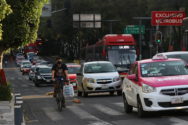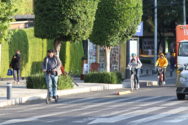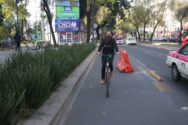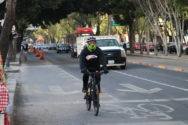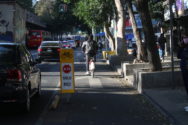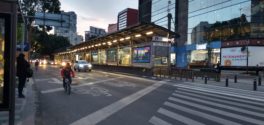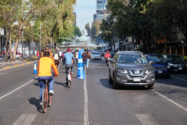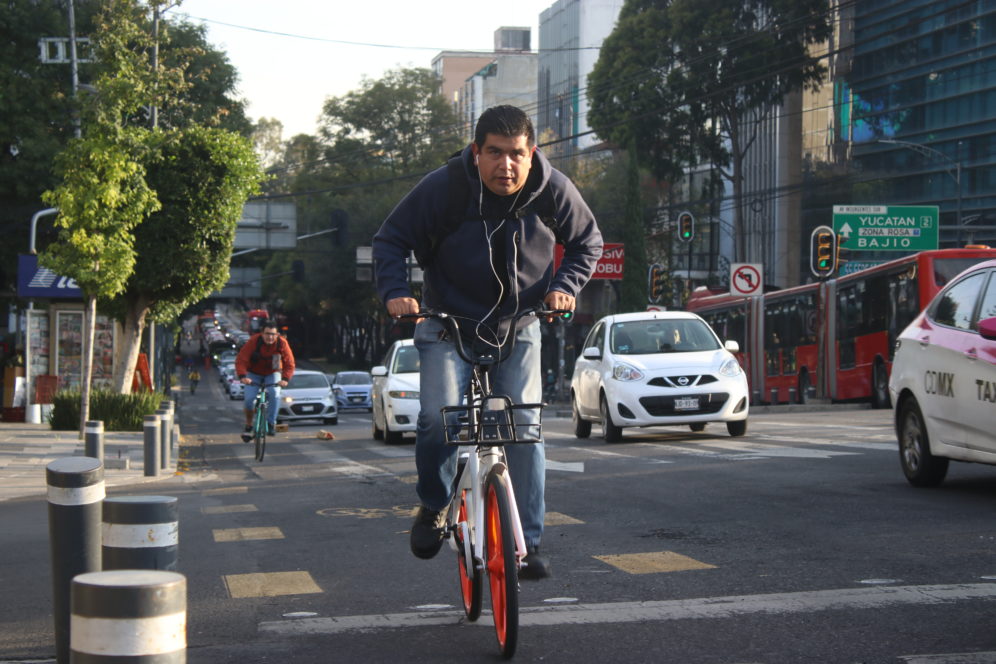
July 26, 2021
Cycling and Mexico City: Better than Before
No single event in modern times has had a larger global impact than the COVID-19 pandemic. It has disrupted our lives, exposed our inequalities, and altered our use of space within our cities. It has also led to a resurgence of cycling around the world.
In many places, both cycling and walking have increased significantly over the past year. Without cars clogging the streets, people have been able to reclaim space. In some parts of Jakarta, cycling ridership went up to 1,000 percent. From Buenos Aires to Guangzhou, people opted to hop onto bicycles rather than into cars and cities responded to these changing demands. From creating pop-up cycle lanes, closing down streets to vehicular traffic, to using coveted street parking for outdoor dining, cities responded quickly to make traveling safer. The common backlash or red tape dissipated in the face of an urgent pandemic demanding immediate responses. This gave way to creative and far-reaching solutions that support sustainable mobility and make cities safer for walking and cycling.
Mexico City has also signed on to ITDP’s Cycling Cities Campaign, which brings together cities, NGOs, and other partners to make cycling a safe and affordable transportation option worldwide. Cycling Cities aims to identify and build on ambitious cycling efforts implemented during the COVID-19 pandemic, like making the Insurgentes lanes permanent, to ensure more people choose cycling.
Now, about 18 months after the onset of the pandemic, aspects of daily life are gradually returning in some cities. Many of the solutions implemented over the past year and a half are becoming permanent fixtures: a new, better normal. One major example comes from Mexico City, where ITDP has been working with the city to grow and improve cycling, among a host of other mobility projects, for the past 15 years.
Mexico City already has one of the world’s best bike-share systems in terms of ridership and has been steadily working toward of goal of building 600km of cycle lanes by 2024. This year, Avenida de los Insurgentes, one of the longest avenues, got an emergency bike lane to support the growing number of cyclists during the pandemic. This 28 kilometer, two-way cycle lane was installed in 2020 and has supported an increase of up to 275% of cyclists during the pandemic. Cyclists throughout Mexico City have responded to the better cycling conditions with enthusiasm and the lane is on its way to becoming permanent, which is scheduled to take place this year.
Cities are making important improvements to cycling and walking in response to changes in travel due to the COVID-19 pandemic. Like we’ve seen in Mexico City, when these projects are made permanent, we have the chance to create a new, better, normal for all people.

